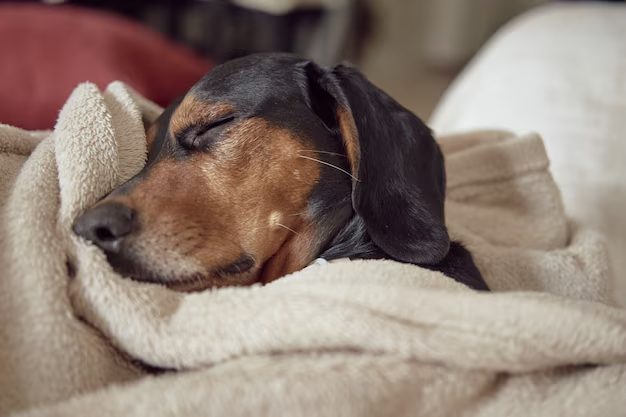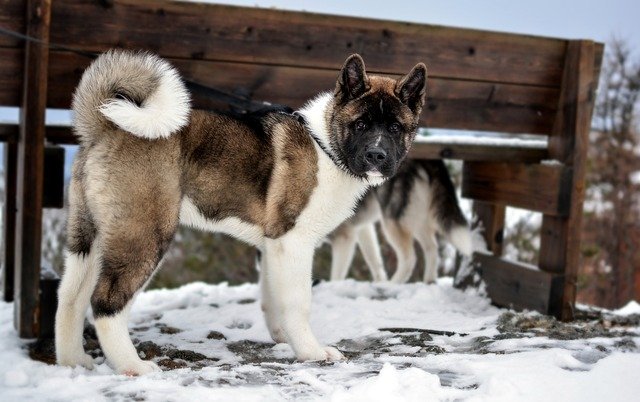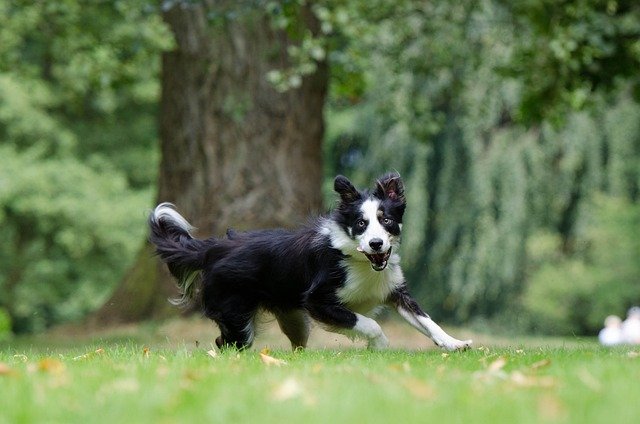Jon and Tom are my beloved dogs. I love them very much. I think they love me too. A few days ago, I noticed something new about my dog Tom. I saw that Tom sleeps so much, and it frightened me. You are not alone if you’ve ever wondered, “Why does my dog sleep so much?” It’s a common question among dog owners. The amount of sleep your dog needs may vary due to different factors, including health, breed, age, and lifestyle. Here, we’ll explore why your dog sleeps so much and the reasons behind your dog’s extensive sleep patterns.

Why Dog Sleep So Much?
- Age: Puppy and Senior dog Sleep so much
In this question—how much sleep does your dog need?—age plays a valuable role. Puppies, like human babies, require more sleep than adult dogs to support their rapid growth and development. They need up to 18-20 hours of sleep a day. Similarly, senior dogs often need more rest. If your dog is a puppy or a senior, it’s normal for them to sleep more.
- Breed: Some Breeds Need More Rest
The energy levels of different breeds are not the same. Dog breeds like Bulldogs, Basset Hounds, and Great Danes are known for their lower energy levels, while breeds like Border Collies and Jack Russell Terriers are renowned for their high energy levels. Lower energy level dog breeds need more rest than higher energy level dog breeds. By understanding your dog breeds characteristics, you can gain insight into their sleep needs and patterns.
- Health and Well-being: When to Be Concerned
Sometimes excessive sleep is considered a signal of health issues. If you notice any suspect conditions, such as a sudden change in your dog’s sleep patterns, lethargy, or discomfort in their usual activities, it could indicate underlying health problems. It may be the signs of common health issues include hypothyroidism, diabetes or arthritis. Therefore, you should check up on your dog regularly and consult with your vet for a specific solution.

- Activity Level: The Impact of Exercise on Sleep
Activity level of your dog is an essential factor in this regard. Dogs who are more physically active will often need more sleep to recover from their exercise. If your dog does exercise more, you might notice they sleep more to restore their energy. If your dogs have a balanced routine that includes regular exercise and outdoor activities, you must allow them plenty of rest.
- Mental Stimulation: The Role of Engagement
“Mental stimulation is considered one of the best physical exercise for dogs. Dogs that lack mental stimulation might sleep more out of boredom. If you wants to keep your dog mentally active and manage the problem dog sleep so much”, you have to engage them different types of training and outdoor activities.”Mental stimulation is considered one of the best physical exercise for dogs. Dogs that lack mental stimulation might sleep more out of boredom. If you wants to keep your dog mentally active and manage the problem dog sleep so much”, you have to engage them different types of training and outdoor activities.
- Environment: Creating a Sleep-Friendly Space
Sleeping quality depends on a secure and comfortable environment. If you provide a cozy and quiet space for your dog to rest, they will have a nice sleep. Comfortable bedding and a good sleeping area can help your dog feel secure, which can improve their sleep quality.
- Seasonal Changes: How Weather Affects Sleep
Seasonal changes are also a crucial factor for your dog’s sleep patterns. During colder months and hotter weather, the sleep patterns of your dogs may be different.

When to Worry About Your Dog Sleep so Much
Don’t worry if your dog sleep so much, but in some cases, you need to be concerned about this problem. If you notice any of the following symptoms, you must consult with your vet:
- If you notice a sudden change in your dog’s sleep pattern, it may be a health issue.
- If you notice your dog seems to lack energy when awake and is unwilling to engage in regular activities, this could be a health issue.
- If you notice any behavioral or physical changes, such as unexplained weight loss or gain or changes in sleep patterns, it could indicate health problems
- If you notice difficulty in breathing, vomiting and diarrhea with sleeping pattern changes, it could indicate health problems also.
- If you notice an increase in sleep accompanied by other changes, such as an increase or decrease in eating and defecation, this could be a health issue.
How much sleep during the day is normal for my dog?
Often 12 to 14 hours sleep in a day is normal for dogs. Different factors, like dog’s breed, age and health issue can impact on this. Sleeping duration may change with different factors. Especially senior dogs and puppies sleep up to 20 hours a day.

Do dogs dream while sleeping?
In this regard the answer is positive. Generally dogs enter a deep sleep stage called the Rapid Eye Movement (REM) phase and this is often linked with dreaming. They show some symptoms such as winking, whining and moving their paws unconsciously during sleep. These signs and symptoms indicate that your dog is dreaming and it might be connected with their daily experiences.
Do dogs snore while sleeping?
Like humans, dogs can snore. Don’t worry about this, because it is a common phenomenon for dogs. Dogs can snore for different reasons, including obesity, various health issues, sleeping position, certain breeds with shorter noses (like Bulldogs or Pugs), allergies or blocked airways. But if you notice any symptoms such as difficulty breathing or if the dog’s snoring is unusually loud and happens every time they sleep, you should consult a vet.



